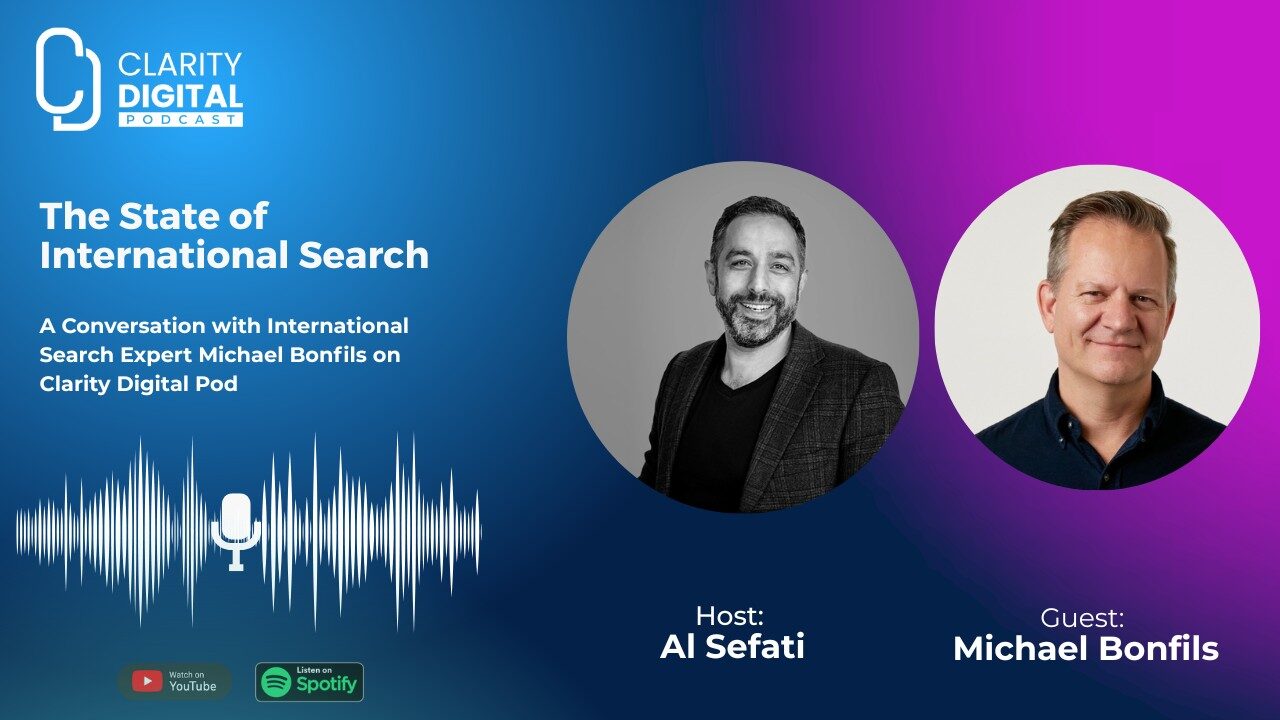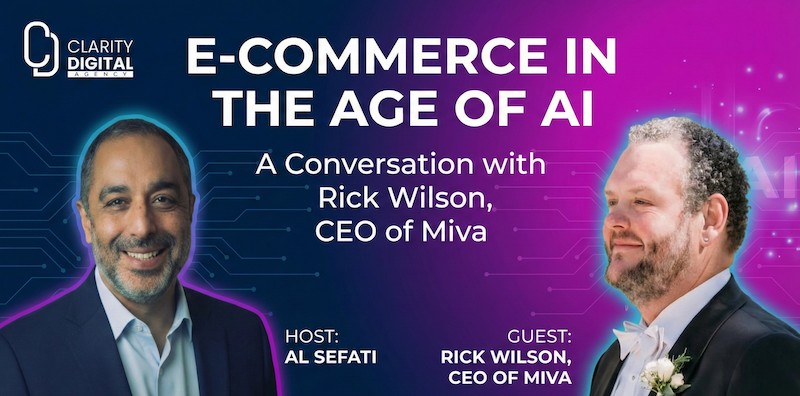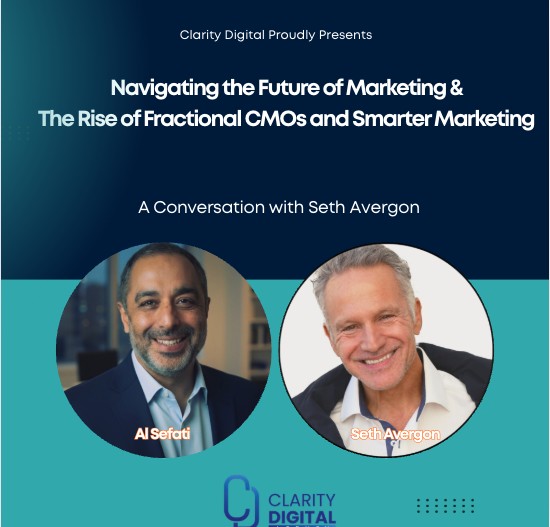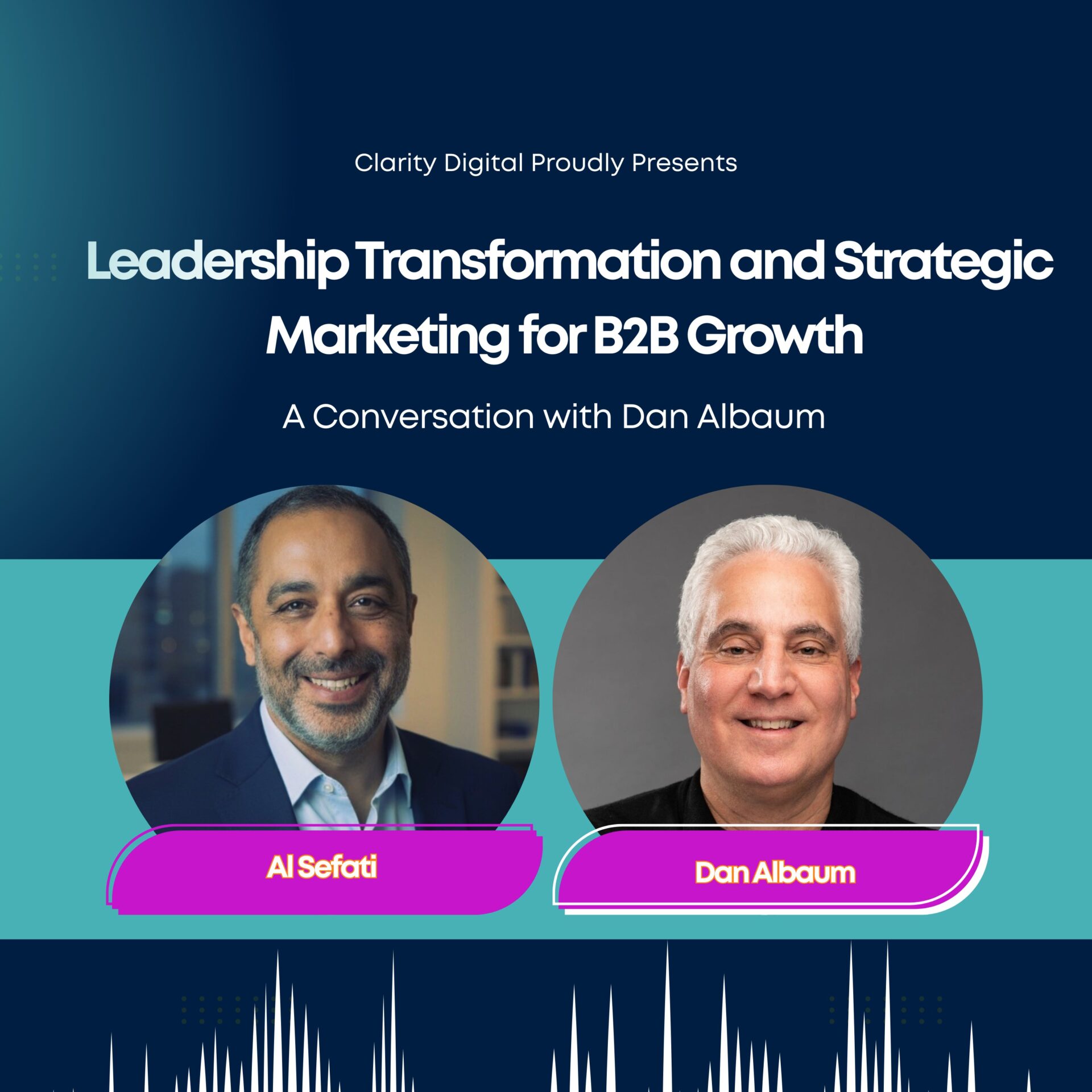In this episode of the Clarity Digital Pod, I sat down with Michael Bonfils, CEO of Digital International Group, to explore the current state of international search and how AI is transforming global SEO. Michael has over two decades of experience working with enterprise brands and agencies worldwide, and he shared incredible insights into the challenges of scaling search strategies across different cultures, languages, and platforms.
Understanding the Changing Landscape of International Search
The digital marketing world is evolving at a rapid pace, and international search is no exception. During our conversation, Michael highlighted how global SEO focus tends to shift in waves.
“Over the years, I’ve noticed patterns,” Michael explained. “Sometimes the spotlight is on Asia, then it shifts to LATAM, then to Europe. These regional surges usually last a couple of years before clients move to new markets or a region reaches saturation.”
LATAM’s Growth and the Challenges Beneath It
Michael shared that the LATAM region has been the hottest area for the past few years. But beneath the growth lies a unique set of challenges.
“Latin America isn’t just about Spanish or Portuguese,” Michael said. “The real challenge is that you’ve got multiple countries sharing similar languages but with different currencies, regulations, and buyer behavior. An Argentinian searching for a product doesn’t want results from Mexico, and vice versa. That’s where international SEO really has to step up.”
I agreed, noting how this kind of complexity is exactly what makes global campaigns more than just translations or keyword swaps.
The Return to Asia and Platform-Specific Strategies
According to Michael, we’re now starting to see a shift back to Asia, particularly China and Southeast Asia. But these markets require a different playbook.
“When you step into Asia, you’re dealing with languages like Chinese, Japanese, Korean, and with search engines like Baidu and Naver,” he explained. “It’s not just about SEO—it’s about understanding entire ecosystems that function differently from Google.”
AI’s Disruption of Global SEO
One of the central themes of our conversation was the impact AI is having on search marketing worldwide.
Moving Beyond Keywords
Michael didn’t hold back when talking about the decline of traditional keyword-driven strategies.
“The days of blue links and static keyword algorithms are over,” he said. “It’s all about visibility and intent now. If you’re not adapting to AI-driven search, you’re going to be left behind.”
I shared how AI has already changed my personal search habits.
“When I go for a walk in the morning, I open my Perplexity app and talk to it,” I told him. “I don’t just type keywords anymore. I have full conversations about strategy, SEO, and problem-solving. That shift alone tells me the old way of measuring SEO doesn’t work anymore.”
Michael agreed, noting that this moment feels like a return to SEO’s roots.
“We’re back to focusing on user intent, assumptions, and creating truly valuable content,” he said. “AI is a helper, not a replacement. The marketers who understand that are the ones who will thrive.”
Localization vs. Translation: Why Cultural Context Wins
A major part of international search success is how you handle language and culture. Michael warned strongly against relying on direct translations or automated plugins.
“Translators are not marketers,” he said. “Localization is not about words—it’s about emotions, intent, and culture. If you just translate text, you sound foreign, and users pick up on that instantly.”
“Localizing Emotions”
Michael shared a unique approach his agency uses, focusing on what he calls “localizing emotions.”
“I can take a French song that makes people cry and translate the words perfectly into English,” he explained. “But the result won’t make anyone cry. When I adapt the song to capture the emotional essence—even if it becomes a country song or a rap—the impact is there. That’s what true localization is.”
I added my own perspective from working with multilingual campaigns.
“I speak Persian as my first language, and the way we ask questions is completely different from English,” I told him. “You can’t just translate keywords or FAQs—you have to capture the cultural way people search and engage.”
Practical Strategies for International SEO in 2025
Beyond the high-level insights, our conversation also covered tactical ways to succeed in global search today.
Building Real FAQs from Real Conversations
I shared a method I use to create authentic FAQs by pulling from customer service call transcriptions instead of generic keyword tools.
“FAQs are gold in the age of AI-driven search,” Michael said. “They mirror how people are asking questions in conversational engines. What you’re doing—using actual customer language—is exactly what brands should be doing.”
AI for Efficiency, Not Replacement
Michael also talked about how AI has drastically cut down the time required for complex projects.
“A content strategy that used to take me ten days can now be done in three hours,” he said. “That doesn’t mean AI replaces the marketer. It means we get to spend more time on strategy, creativity, and solving real problems.”
I agreed, sharing how AI has allowed me to move away from manual campaign setups and audits to focus more on strategic and creative work.
Case Study: Zero-Budget Global Strategy with AI
One of the highlights of the episode was Michael’s story about creating a zero-budget international marketing strategy for a snowboard backpack brand.
“I built AI-driven cultural personas for each target market and ran them through a simulated focus group,” he explained. “By giving each persona a cultural and psychological background, I was able to generate strategies specific to each country without spending a dime.”
This example perfectly illustrated how AI can democratize global marketing for brands of any size when combined with creativity and cultural insight.
Key Takeaways for Marketers
As we wrapped up, Michael left a strong reminder:
“International SEO isn’t just about language. It’s about culture, psychology, and intent. Brands that ignore that will always sound foreign—and they won’t convert.”
For me, the biggest takeaway was that while AI is changing the tools, the metrics, and even the way users search, the heart of great marketing hasn’t changed. It’s still about understanding people and connecting authentically. AI is a powerful enabler, but the human element is what makes campaigns succeed.
Connect with Michael Bonfils
You can find Michael on LinkedIn at linkedin.com/in/michaelbonfils or visit his agency at www.digitalinternationalgroup.com.





